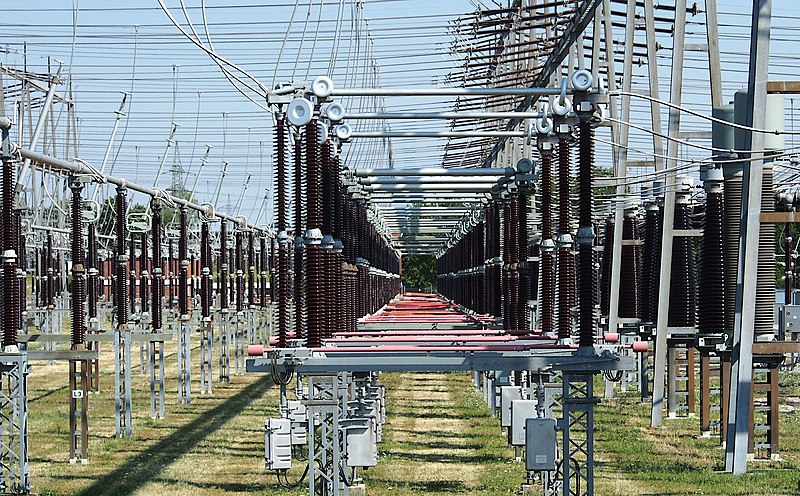Facts for Kids
Electrical engineering is the study, design, and application of systems that use electricity, electronics, and electromagnetism.
Overview
Fundamental Concepts
Famous Electrical Engineers
Challenges And Future Trends
Key Principles Of Electricity
History Of Electrical Engineering
Electronics Vs Electrical Engineering
Major Fields Of Electrical Engineering
Innovations And Technological Advancements
Career Opportunities In Electrical Engineering
Applications Of Electrical Engineering In Daily Life

Inside this Article
Artificial Intelligence
Wireless Communication
Space Exploration
Electromagnetism
Thomas Edison
Air Pollution
Electronics
Information
Computer
Travel
Ohm
Did you know?
⚡️ Electrical engineering is all about understanding and using electricity.
💡 The first practical light bulb was invented by Thomas Edison in 1879.
🌍 A key figure in electrical engineering, Nikola Tesla worked on alternating current (AC) electricity.
📊 Ohm's Law helps us understand how voltage, current, and resistance work together.
🚀 Electrical engineering includes many fields, like power engineering and telecommunications.
🎮 Electrical engineers design systems that improve our daily lives and technology.
🔌 Circuits are paths that electricity follows to power devices.
🌈 Every gadget you use, like a computer or microwave, is influenced by electrical engineering.
🌟 Innovations in electrical engineering include renewable energy sources like solar and wind power.
🤖 Future trends include smart cities and advancements in artificial intelligence.
Introduction
️ Imagine how different things around us work, like lights, computers, or video games. Electrical engineers study how electricity can be used to make new inventions or improve our daily lives. In simple terms, they apply their knowledge of electricity, electronics, and electromagnetism to create tools and machines. 🎮🔌 This exciting field of engineering helps shape the modern world by making technology better and more efficient!
Fundamental Concepts
️ These electrons travel through wires and can power many amazing devices. Electrical engineering includes key concepts like circuits, which are paths that electricity can follow, and voltage, which is like the "push" that makes electrons move. You might find it helpful to think of electricity like water flowing through pipes. 💧
When there’s a blockage, it can’t flow! Understanding how these concepts work helps electrical engineers design smarter systems and devices!
Famous Electrical Engineers
Thomas Edison is famous for inventing the light bulb and the phonograph. Nikola Tesla made breakthroughs in AC electricity and wireless communication, essential for today's tech! 💡🔊 More recent engineers like Gordon Moore co-founded Intel, a huge computer chip company. Each of these individuals has contributed to the incredible advances we see in technology today! 🚀
Challenges And Future Trends
These challenges require creative thinkers to develop exciting solutions for a better future!
Key Principles Of Electricity
Voltage is the push of electricity, current is the flow, and resistance is what slows it down. Imagine if you were pushing a toy car uphill! 🚗
The steeper the hill (more resistance), the harder you have to push (more voltage). These principles help electrical engineers create safe and efficient products, ensuring everything works properly!
History Of Electrical Engineering
It all began in the late 1800s when inventors like Thomas Edison and Nikola Tesla started creating amazing things. Edison invented the first practical light bulb in 1879. 💡
Tesla, on the other hand, worked on alternating current (AC) electricity, which we still use today! By 1884, electrical engineering became its own special field. Over the years, many inventors and engineers made incredible discoveries that brought us to our high-tech world! 🌍
Electronics Vs. Electrical Engineering
️ Electrical engineering deals with large systems, like power plants and grid systems. In contrast, electronics focuses on small devices, like radios or smartphones. 📱
Electrical engineers design systems that generate and distribute electricity, while electronics engineers work on devices that use this electricity in innovative ways. Both fields are important and often work together to create awesome technology! 🤝
Major Fields Of Electrical Engineering
Some of these include power engineering, which focuses on generating and distributing electricity, and telecommunications, which is all about sending information through wires or air. 🚀
Control systems help manage machines and processes, while electronics deals with smaller gadgets like smartphones. Each field has its unique applications and challenges, making electrical engineering a diverse and dynamic area of study!
Innovations And Technological Advancements
For instance, renewable energy sources like solar and wind power are becoming more popular. ☀
️🌬️ Engineers are designing new ways to capture and store energy, reducing our reliance on fossil fuels. Other advancements include smart homes, where we can control devices with smartphones, and electric vehicles, which help reduce air pollution. These innovations show how electrical engineering has the power to make a difference in our world! 🌍
Career Opportunities In Electrical Engineering
Many exciting job opportunities are available in this field. Electrical engineers may work for companies that design gadgets, build solar power plants, or even develop new technology for space exploration! 🌌
Some may become researchers, inventing new systems to improve our lives, or educators, teaching the next generation about electricity. The possibilities are endless! 💼
Applications Of Electrical Engineering In Daily Life
Every time you use a gadget, like a microwave or a computer, you benefit from the work of electrical engineers. 🖥
️ They help design devices that make our lives easier and more fun! From the streetlights that brighten your way at night to the smartphones that keep you connected, electrical engineers play an essential role in making everything work smoothly! ⚡
️

